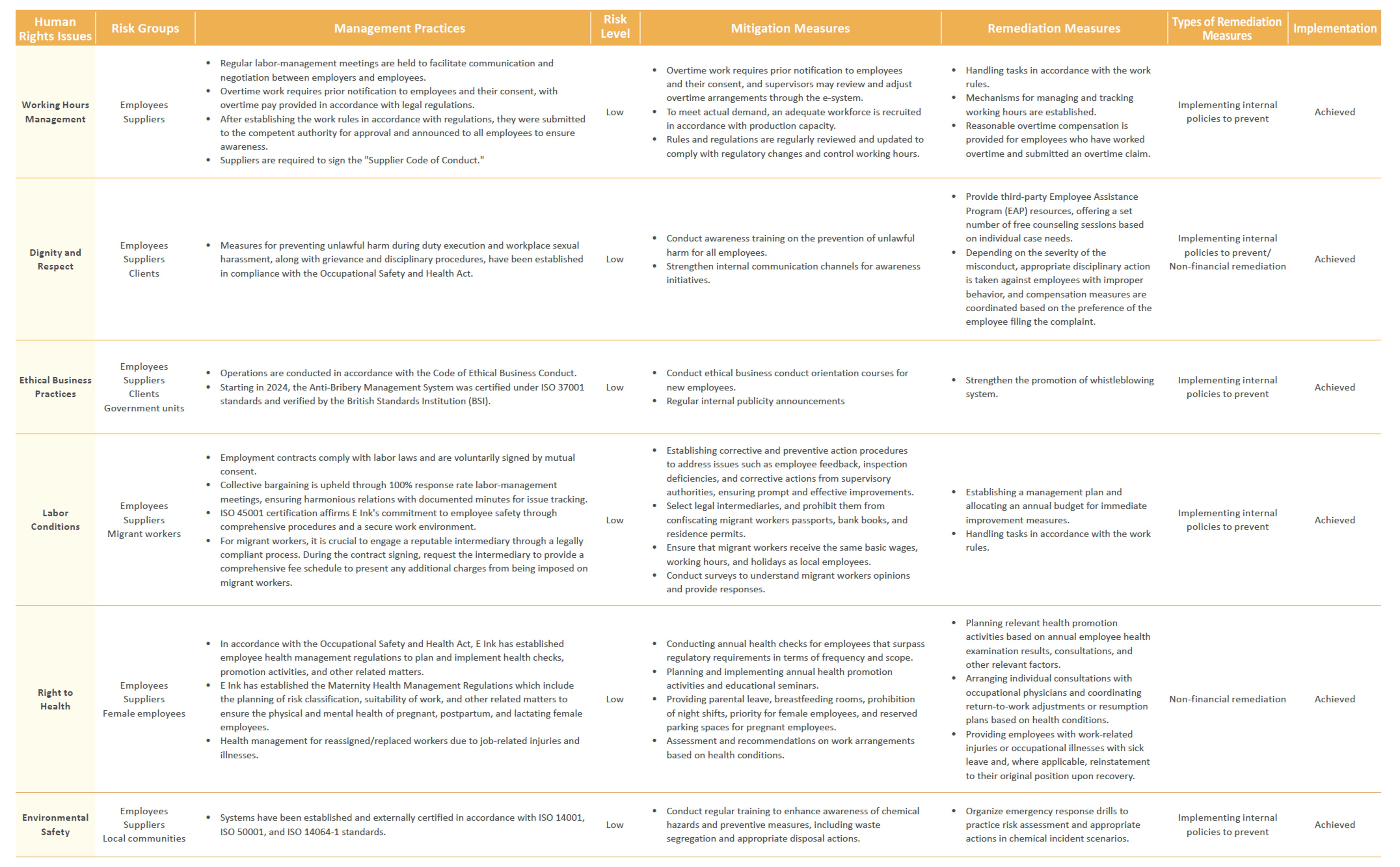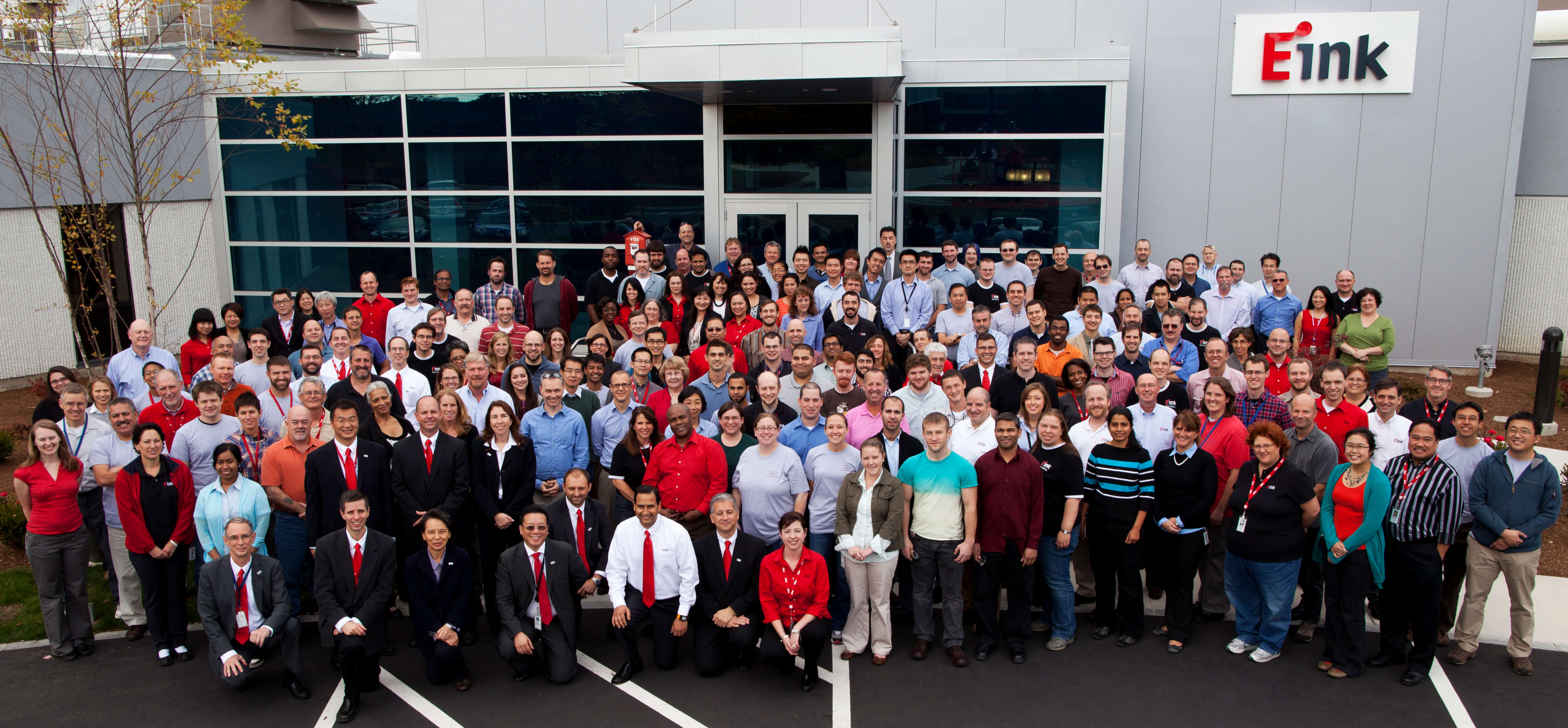E Ink Holdings Human Rights Policy(Updated in September 2025)

E Ink Holdings believes that respecting human rights and promoting a decent work environment are important throughout the Company and its supply chain. E Ink Holdings abides by local laws and regulations in all countries and regions where we operate, and upholds the human rights of all workers, including regular, contract and temporary employees, interns and contractors. Addressing human rights issue in complex supply chains is a shared responsibility. This policy applies to E Ink's own operations, affiliated companies, and requires its suppliers and partners to follow the same standards.
We support the UN Universal Declaration of Human Rights (UDHR), and are committed to treating all workers with dignity and respect as understood by international human rights standards, including The International Bill of Human Rights, The International Labour Organization’s (ILO) Declaration on Fundamental Principles and Rights at Work, The UN Guiding Principles on Business and Human Rights (UNGPs), The OECD Guidelines for Multinational Enterprises and The Ten Principles of The United Nations Global Compact (UNGC). We also align our actions with the Responsible Business Alliance (RBA) Code of Conduct.
Implementation guidelines:
1. We integrate the respect to the economy, society, culture, citizen, political right, and development in our operations.
2. We provide safe, healthy and harassment-free (including sexual and non-sexual harassment) work environment, ensure no discrimination based on gender or sexual orientation, uphold the principle of equal pay for equal work, and guarantee equal employment opportunities.
3. We prohibit child labor, forced/compulsory labor, and human trafficking or illegal acts in any form.
4. We are committed to responsible procurement of minerals.
5. We eliminate unlawful discrimination and ensure that no individual is discriminated against based on race, color, nationality, gender, sexual orientation, religion, disability, age, political opinion, pregnancy, marriage or family status, or other similar factors. We shall protect the labor rights of the indigenous peoples, women, migrant workers, contracted employees, people with disabilities, and other disadvantaged or marginalized groups.
6. We comply with all the applicable regulations on the wages and working hours. Working hours shall not exceed the maximum limit set by local laws, with a maximum of 60 hours per week (including overtime), except in emergency or exceptional circumstances. Employees shall not work for more than 7 consecutive days. Fair and adequate living wages shall be paid on time, with legally authorized deductions clearly stated on the pay slip.
7.We build an environment favorable for communication, develop an open management model, provide a leave and attendance management system in compliance with local regulations (including annual leave) to support and help employees maintain their physical and mental health, and ensure the balance of their work and life.
8. We allow the freedom of association subject to relevant regulations and conduct dialogue through different open channels.
9. We provide multiple open dialogue channels including whistleblowing mechanisms to ensure that the suppliers, partners and other stakeholders can give feedback to the Company or report suspected illegal acts.
10. We may review and assess related risks, practices and effects to cope with changing situations and meet the requirement of the stakeholders. E Ink, in its employee recruitment, management, and development practices, strictly complies with the Labor Standards Act and is also committed to upholding human rights policies. In the event of mass layoffs or organizational restructuring, the Company is committed to adhering to international human rights standards and local labor regulations. We will provide at least 60 days’ prior consultation or notice before implementation to ensure that affected employees receive adequate information, fair compensation, and necessary support services, thereby assisting them in making a dignified transition and mitigating adverse impacts on their families and society.



